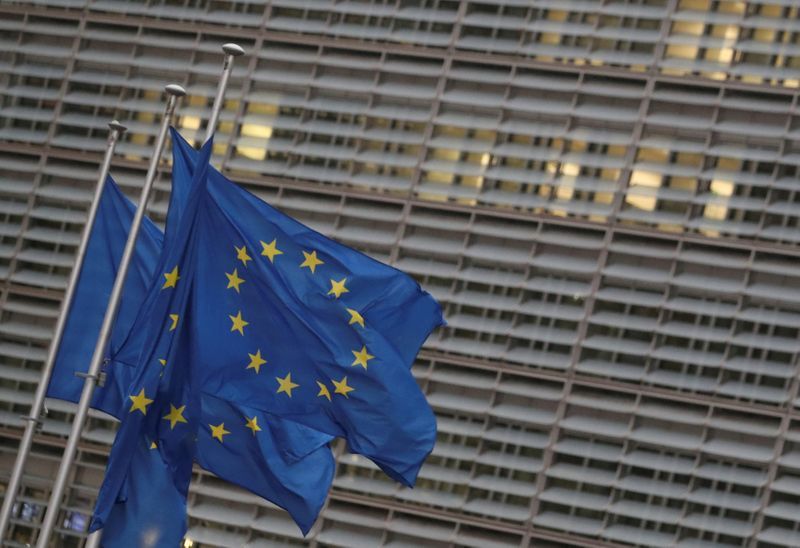
FILE PHOTO: European Union flags flutter outside the European Commission headquarters, where Brexit talks are taking place, in Brussels, Belgium, December 24, 2020.
BRUSSELS: EU countries on Wednesday agreed to take a joint position in forthcoming negotiations with EU lawmakers and the European Commission on planned privacy rules governing Facebook’s WhatsApp and Microsoft’s Skype, ending a three-year impasse.
The European Commission proposed its ePrivacy Regulation in 2017, which would subject WhatsApp and Skype to the same rules as telecoms providers and restrict the tracking of users in order to provide personalised ads.
The proposal, which aims to create a level playing field between internet players and telecoms providers, needs input from the European Parliament and EU countries before it can be adopted as law for the 27-country bloc.
While EU lawmakers quickly agreed a joint stance, the countries had until now failed to find common ground because of disagreements over rules for cookies, consent requirements and provisions on detecting and deleting child pornography.
“The path to the Council position has not been easy, but we now have a mandate that strikes a good balance between solid protection of the private life of individuals and fostering the development of new technologies and innovation,” Portuguese Infrastructure Minister Pedro Nuno Santos said in a statement.
Portugal holds the rotating EU presidency to mid-2021.
EU countries agreed that the rules will allow processing of metadata for purposes such as fraud detection and traffic management, satisfying a key demand from the telecoms industry which wants to use network location data for smart transport services as a potential money spinner.
“We believe that a flexible, risk-based approach to processing communications metadata will be critical to ensuring that telcos can innovate and participate in the data economy on an equal footing with other digital players,” telecoms lobbying group ETNO said in a statement.
Tech lobbying group CCIA pointed to some shortcomings.
“This includes the scope of the rules for connected devices and online communications, and how to fix inconsistent enforcement across the EU,” its public policy senior manager Alexandre Roure said in a statement.

